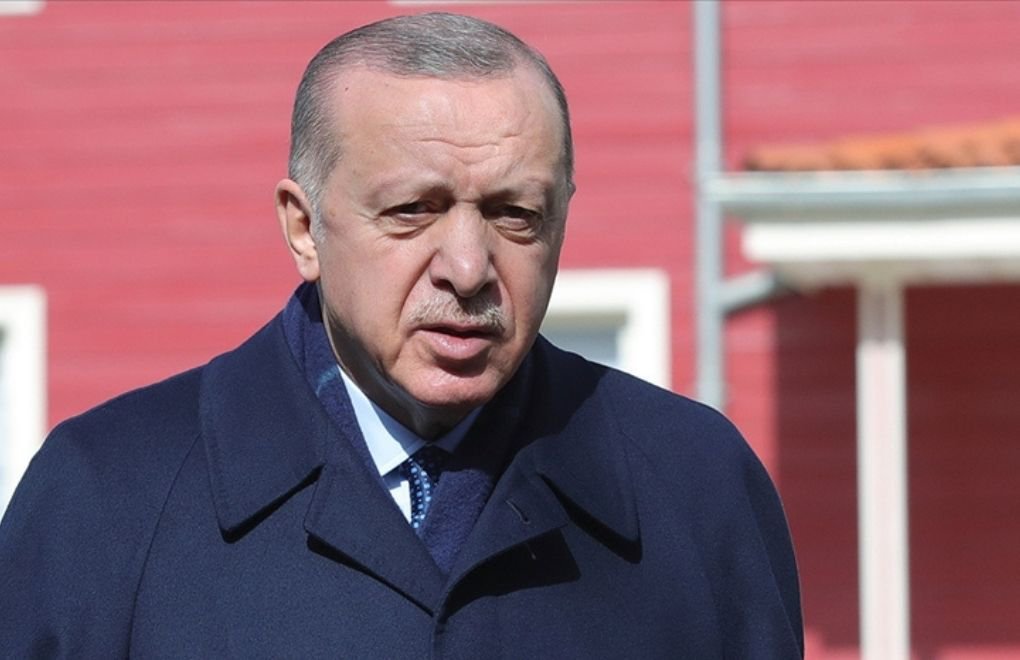* Photo: İstanbul/AA
Click to read the article in Turkish
President and ruling Justice and Development Party (AKP) Chair Recep Tayyip Erdoğan addressed the reporters after the Friday prayers.
Touching on a series of issues in his speech in İstanbul, Erdoğan also talked about the novel coronavirus (COVID-19) restrictions ahead of the planned "gradual normalization" as of March 1.
As Minister of Health Fahrettin Koca said that the President would announce the decisions to be taken about the restrictions, Erdoğan said:
"The works of the Science Board will be presented to the Cabinet. Our Minister of Health will present the state of mutations by provinces.
"At the Cabinet meeting, we will take decisions about what measures we can take and what steps we can take about restaurants and hotels."
'It is not possible for us to accept coups'
Erdoğan also talked about the recent developments in Armeni̇a, saying that Turkey is opposed to all kinds of coups.
"We are against all kinds of coups. It is especially not possible for us to accept coups," Erdoğan said, calling the military's coup attempt in Armeni̇a "unacceptable". He added that the public is already in a position to lawfully replace Prime Minister Nikol Pashinyan.
"If there is a change in administration, the Armenian people will do that. It should be left to the will of the Armenian people," Erdoğan said, adding that "Pashinyan's fate has already become clear" as the public is "tired" of him.
The chief of the Armenian military and other senior commanders on Thursday (February 25) released a statement calling on Pashinyan to resign. Pashinyan blasted the military's call as a coup attempt and urged his supporters to take to the streets to resist.
The unrest has followed the end of a military conflict between Armenia and Azerbaijan last fall widely seen as a gain for the latter.
Relations between the former Soviet republics have been tense since 1991 when the Armenian military occupied Nagorno-Karabakh, also known as Upper Karabakh, and seven adjacent regions.
During the six-week conflict, which ended with a Russian-brokered truce, Azerbaijan controlled several cities, including the main city of Shusha, and nearly 300 of its settlements and villages.
Following this truce, thousands of people took to the streets to protest Pashinyan for accepting the peace treaty, calling him a "traitor." (PT/SD)





